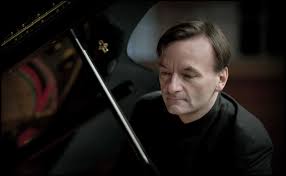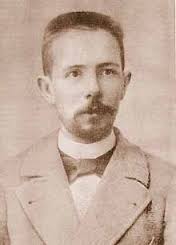The Dome, Brighton, Sunday 11 October 2015
Most new seasons are launched with familiar works which will bring in a good audience to set the tone for the rest of the year. There was certainly a goodly sized audience at the Dome but the works – with exception of the concerto – were certainly not on most people’s list of the top 100.
Tchaikovsky’s Francesca da Rimini is a bombastic piece, full of angst and noise but suspiciously little content. The influence of Wagner is very clear in the louder passages – closer to the Flying Dutchman than the Ring Cycle- though there is little sense of control of the material or of any real narrative content. The central, more reflective, sections work best and sound more like Tchaikovsky but there is little that is memorable compared with Romeo & Juliet.
The transformation into Beethoven’s first piano concerto could hardly have been greater. Stephen Hough is a master of delicacy and detail, yet he also manages to bring wit and panache to his playing. Not since I heard these concerti with Alfred Brendel have I come across such an undemonstrative performer who yet brings every note stunningly to life. Everything is in the music and we are forced to listen more closely because of the total lack of visual affectation. It was masterly. I don’t normally like Steinway pianos for Beethoven but Stephen Hough manages to create the most delicate tone and rapid dynamic changes without any rough edges or compromise. The cadenza was unfamiliar to me and there was no note to indicate if this was improvised by Stephen Hough himself – it was certainly very apt and delightfully in keeping with the whole.
The other unknown quantity for this opening performance was the first symphony by Vasily Sergeyevich Kalinnikov – a name previously unknown to me but one which, on this hearing alone, should be far more widely known. The composer’s short and tragic life ended in 1897 just as his works were beginning to be recognised. This first symphony, written in 1895, was successfully presented in Moscow, Berlin, Paris and Vienna, and a piano reduction published.
It is essentially Russian but its enthusiasm and vivacity far exceeds any national constraints. There is no hint of Tchaikovsky; if anything it sounds closer to Dvorak and leans towards the later composer’s faults and merits. Kalinnikov tends to repeat his musical ideas at great length but has a real gift for orchestration and dynamic so that the mind never feels sated or bored by repetition. The second movement with its harp and string ostinati is very beautiful, flowing easily with a clear sense of structure and line. The lively brass writing and extrovert dance rhythms of the scherzo are captivating. I felt a little concern for the second percussion player who sits in splendid isolation until the final pages of the last movement when the triangle is needed – but it really is needed and adds that tiny touch of sparkle to the climax – yet another example of the composer’s absolutely secure understanding of tonal colour. I’m not sure whose idea it was to include the work in this opening concert – possibly Barry Wordsworth now fully returned from his antipodean travels – but it was thrillingly apt. Let us hope we hear more of Kalinnikov – he certainly deserves a reassessment.


